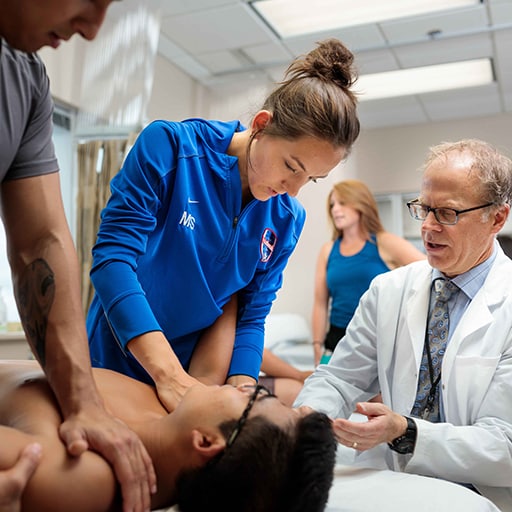Although pregnancy is a miraculous adventure, giving birth to a child presents challenges and adjustments for women. Many women have physical discomfort, weakness, and musculoskeletal problems after giving birth. Postpartum physical therapy has become a popular technique to assist their recovery and treat these physical issues. Postpartum Physical Therapy has advantages that go beyond the physical, though. In addition to providing essential emotional support, this specialized form of treatment aids new moms in navigating the emotional ups and downs that frequently accompany the postpartum period.
The Physical Difficulties of Postpartum
A woman’s body needs time to repair and recover from the physical strains of pregnancy and delivery during the postpartum period, sometimes known as the first six weeks after giving birth. The body changes significantly during pregnancy to make room for the developing fetus, which can cause posture to change, muscular imbalances, and increased pressure on the pelvic floor. Additionally, whether vaginal or by cesarean section, the laboring phase can strain the body and cause problems like diastasis recti (abdominal separation), pelvic floor dysfunction, and back pain.
Postpartum Physical Therapy’s Function
“postpartum” is when an illness or injury has compromised a person’s physical well-being. Physical therapists with postpartum care expertise assess and manage a range of postpartum problems, including:
- Diastasis Recti: To increase core stability and lessen the gap between the abdominal muscles, physical therapy can help strengthen and realign the abdominal muscles.
- Physical therapists can offer exercises and strategies to help patients with pelvic floor dysfunction strengthen and relax their pelvic floor muscles, which can help with problems including urine incontinence and pelvic pain.
- Back and Hip discomfort: Postpartum physical therapy helps treat musculoskeletal problems brought on by pregnancy and labor, such as back and hip discomfort.
- Physical therapy can help with scar healing and increase mobility in the tissues surrounding the scar for women who have had cesarean sections.
Supportive Emotions in Postpartum Physical Therapy
In addition to its physical advantages, postpartum physical therapy gives new moms a secure and encouraging setting where they may discuss their mental struggles and get advice on handling the emotional demands of the postpartum period. Following are some ways that postpartum physical therapy offers emotional support:
- Physical therapists for postpartum clients know that the postpartum period can be emotionally taxing for many women. They give mothers a kind, accepting environment to express their thoughts and feelings.
- Validation and Empathy: A wide range of feelings, from delight and happiness to anxiety and despair, may be felt by new mothers. Physical therapists for new mothers offer affirmation and understanding, acknowledging that these feelings are ordinary and necessary for the postpartum period.
- Addressing Postpartum Sadness and Anxiety: Physical therapists for new mothers are taught to spot the symptoms of postpartum sadness and anxiety. When required, they can provide support, suggest suitable resources, or make referrals to mental health specialists.
- Encouragement and motivation: Physically demanding during the postpartum period, progress could take some time. Physical therapists for new mothers offer support and inspiration to help them stay on track with their recovery.
- Creating a Supportive Network: Postpartum physical therapy can assist mothers in connecting with other women who are going through comparable circumstances, providing a sense of community and support.
Conclusion
Beyond treating physical issues, postpartum physical therapy supports new moms as they navigate the emotional challenges of the postpartum period. Physical therapists are essential in assisting women in navigating the emotional difficulties that frequently accompany childbirth by offering a supportive and empathetic atmosphere. It is ensured that new moms receive complete care during this formative stage of life by combining emotional assistance with physical care. Consider seeking the advice of a postpartum physical therapist to start on a healing and support route if you are a new mother who is having physical pain or mental difficulties following childbirth.

